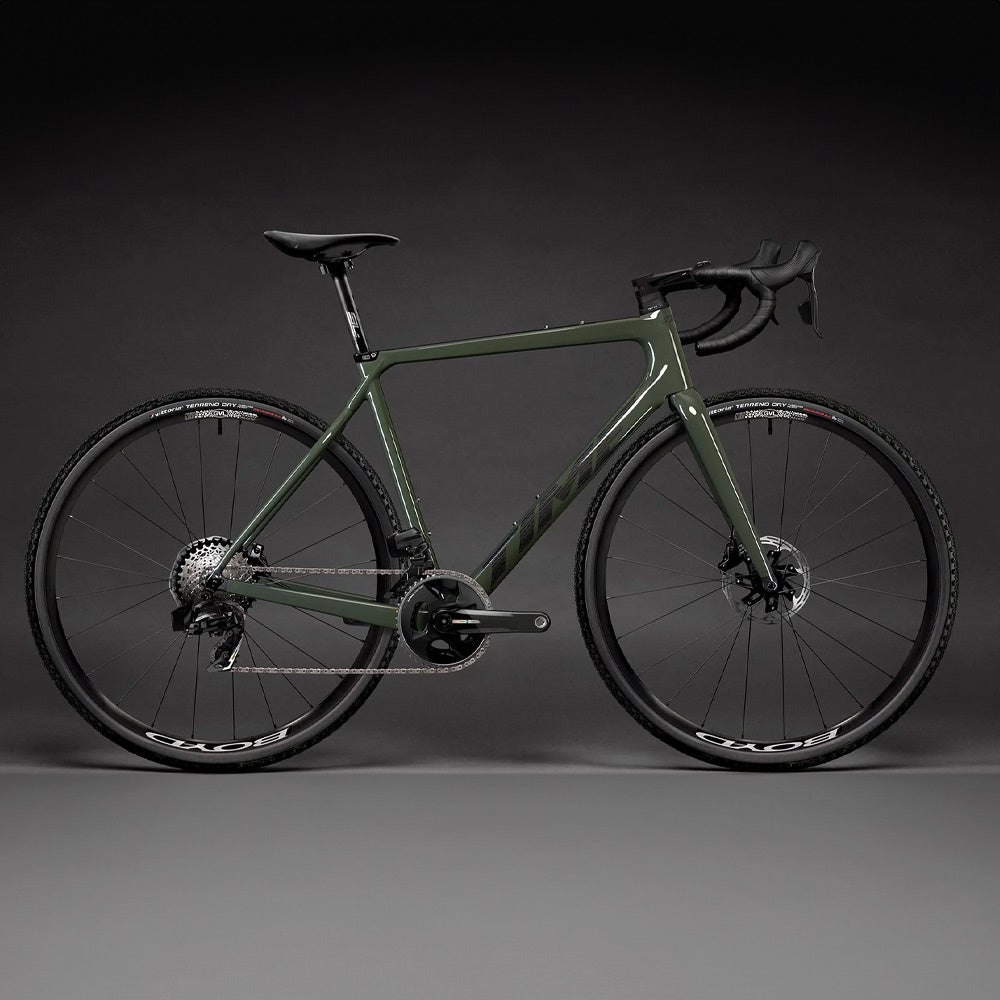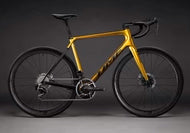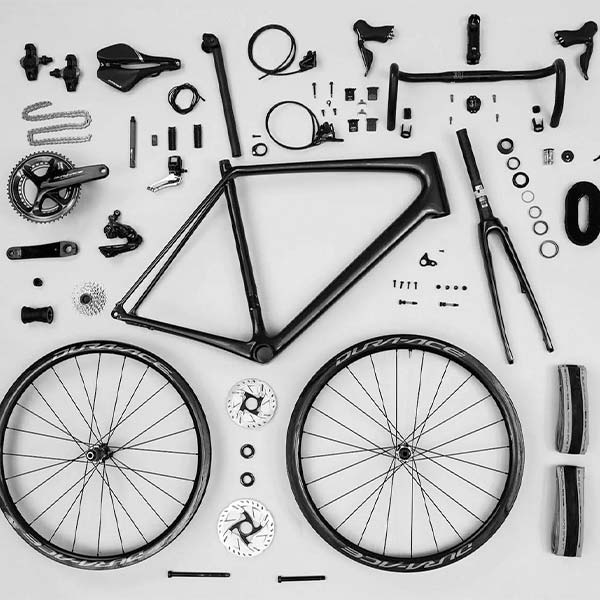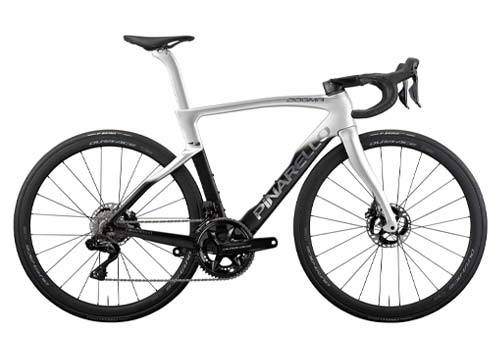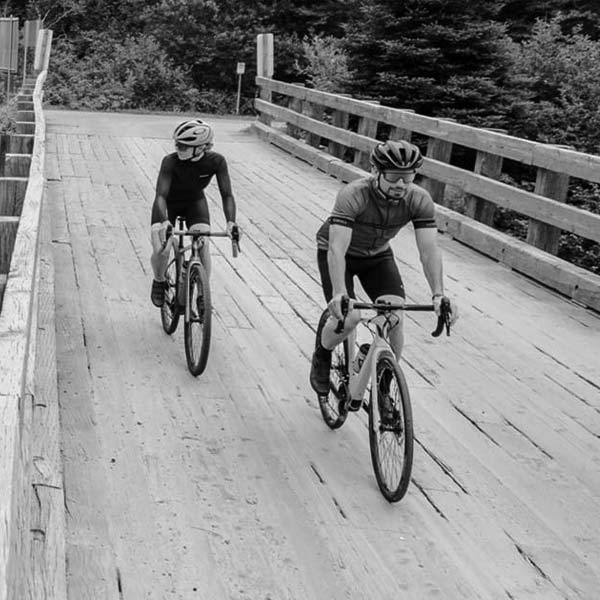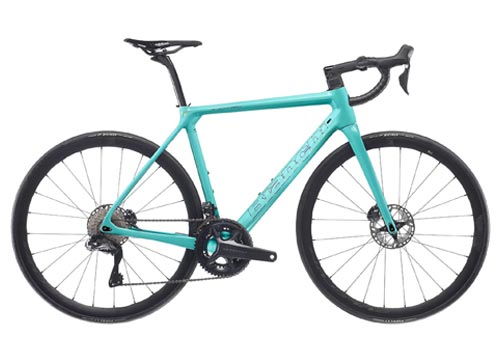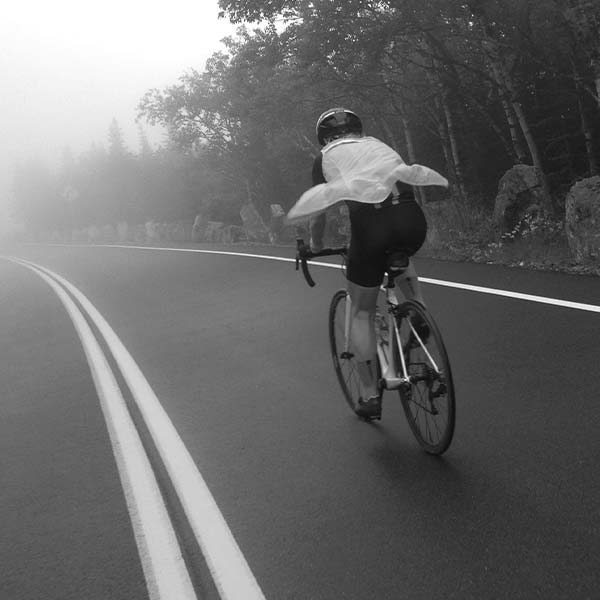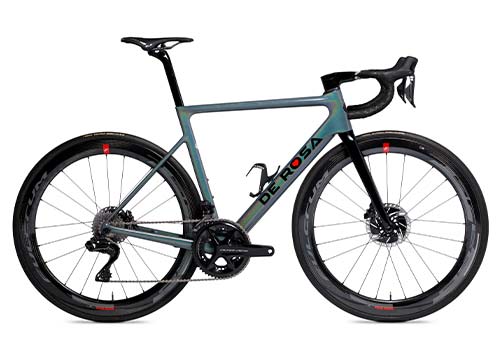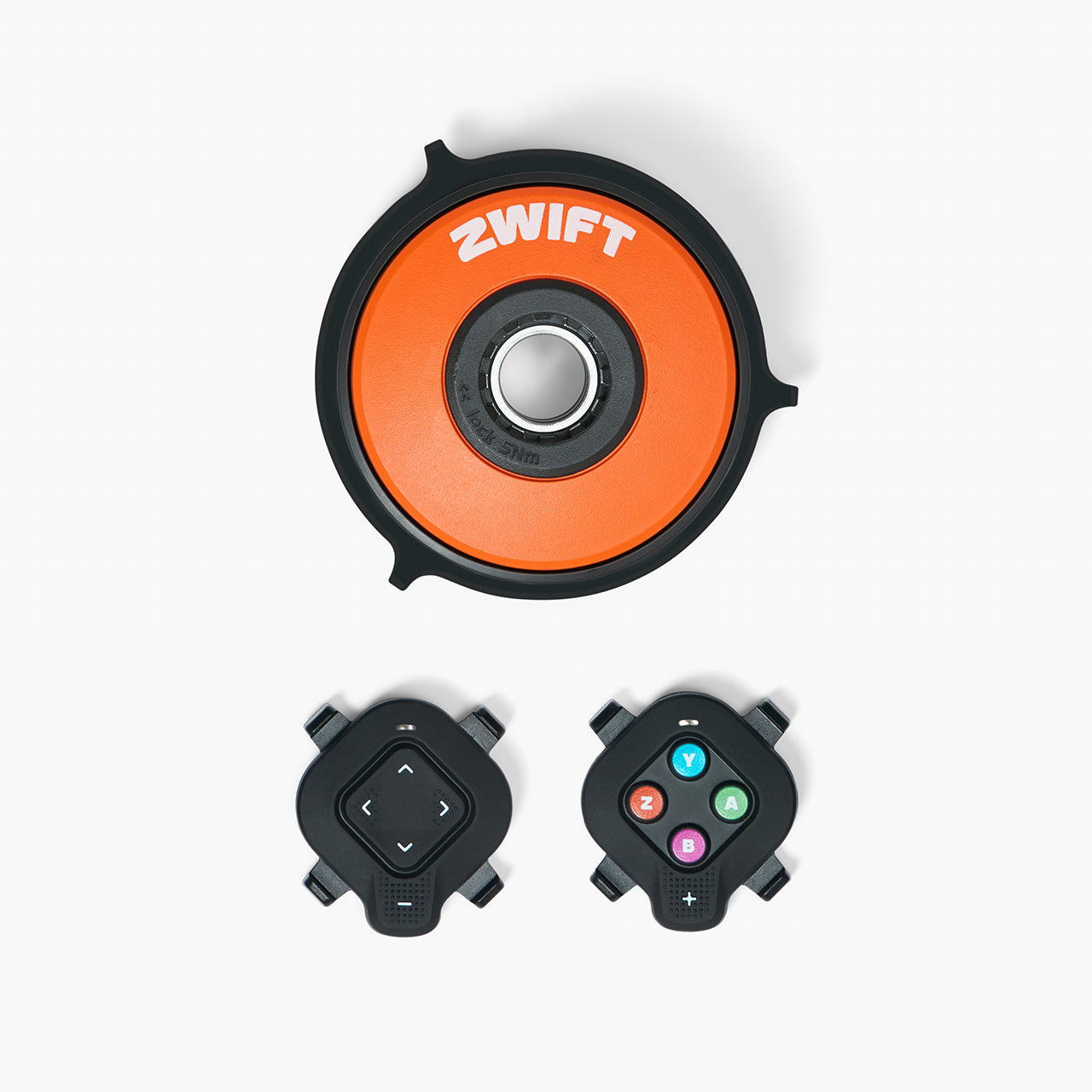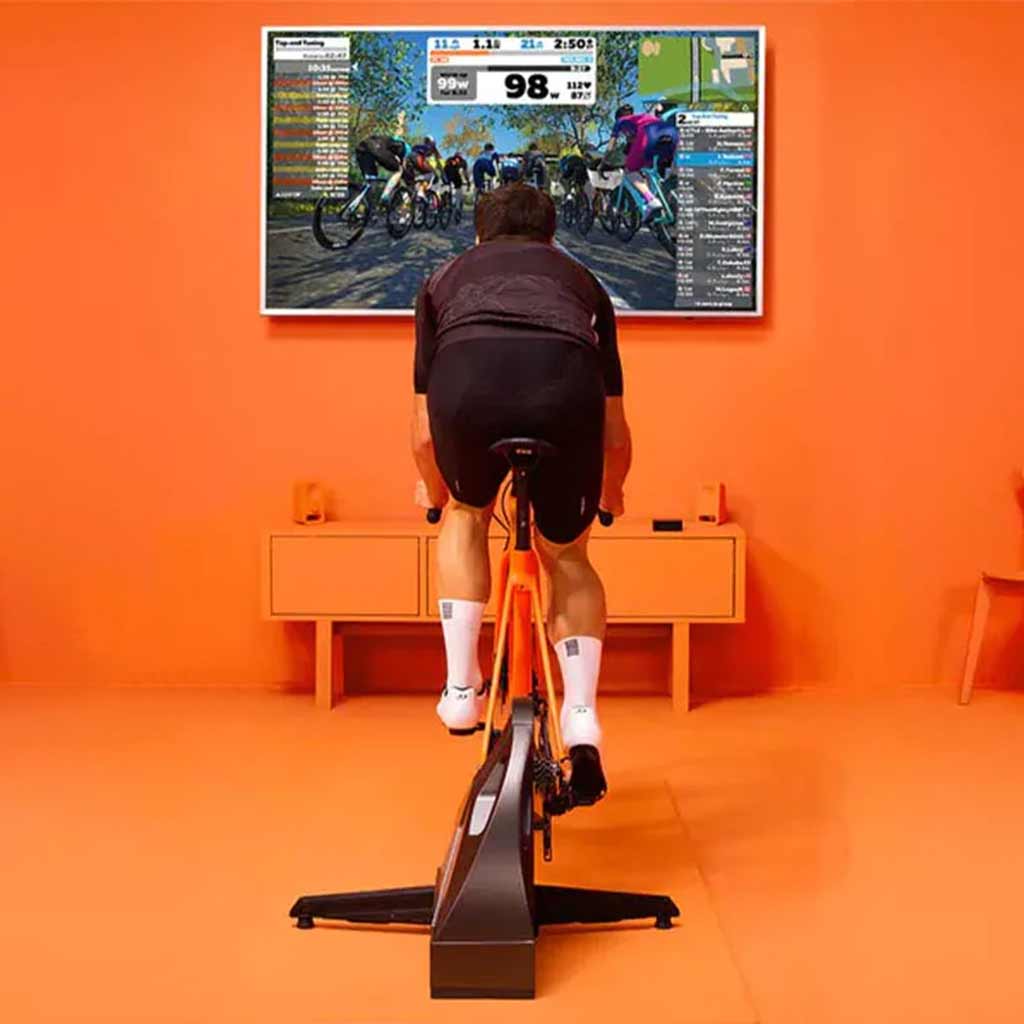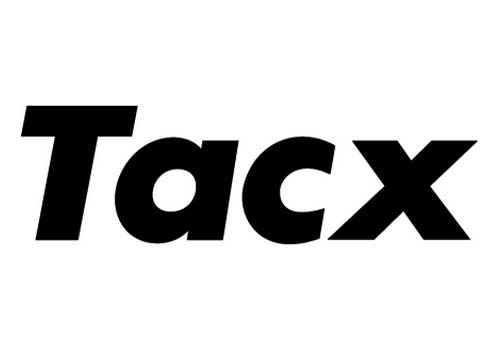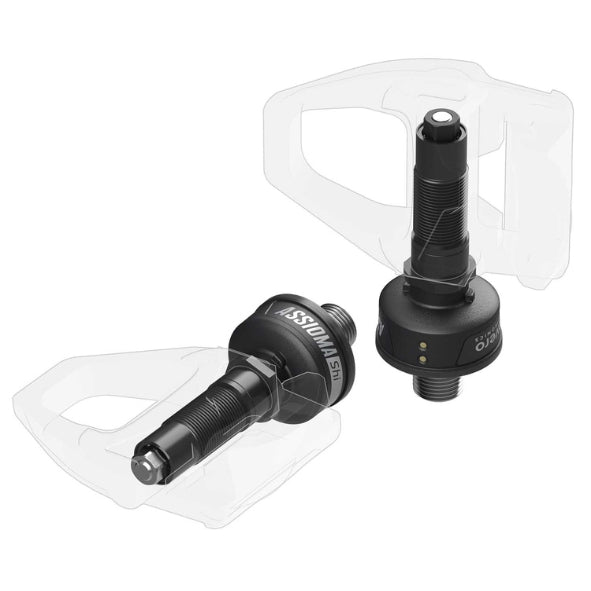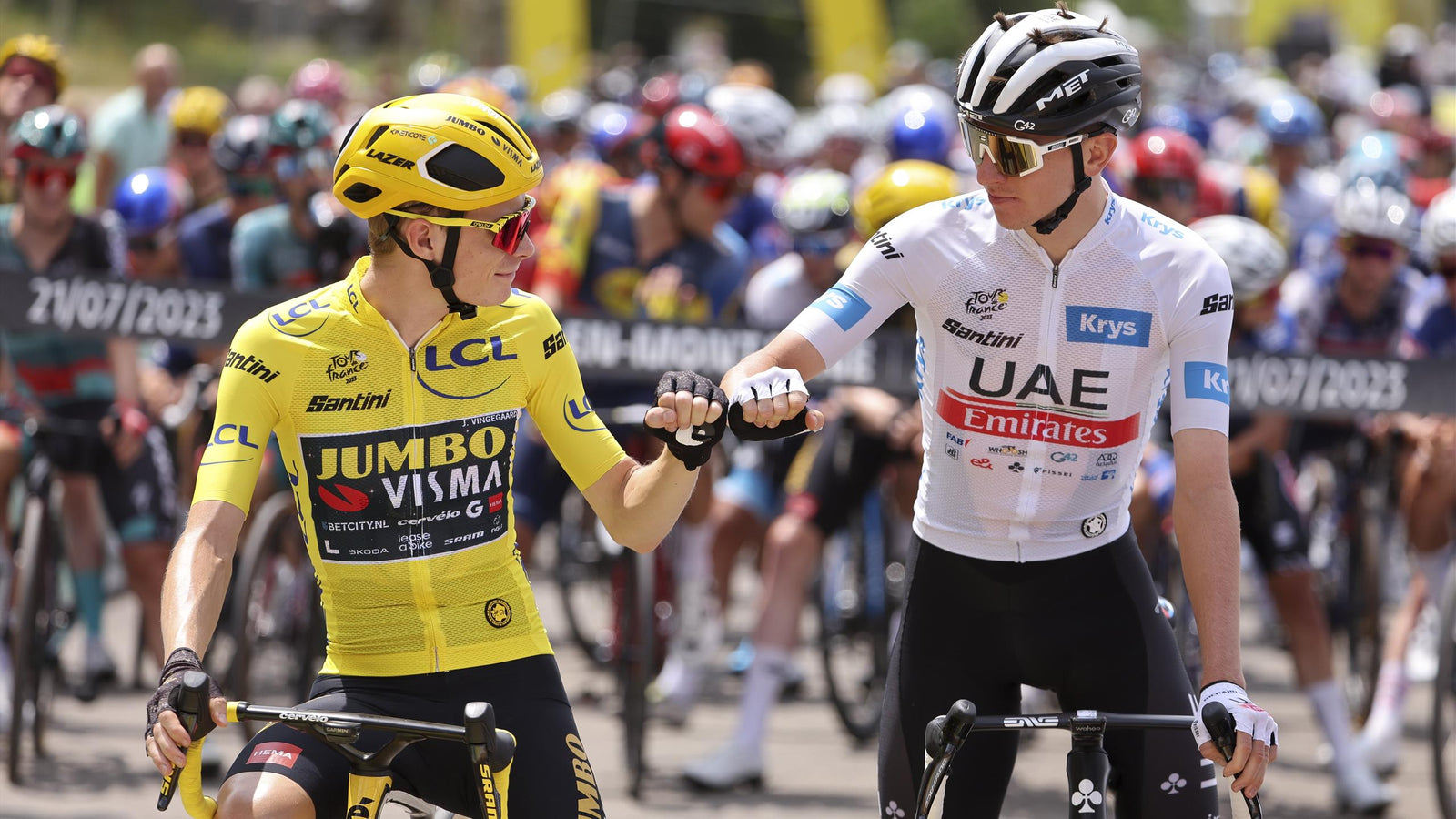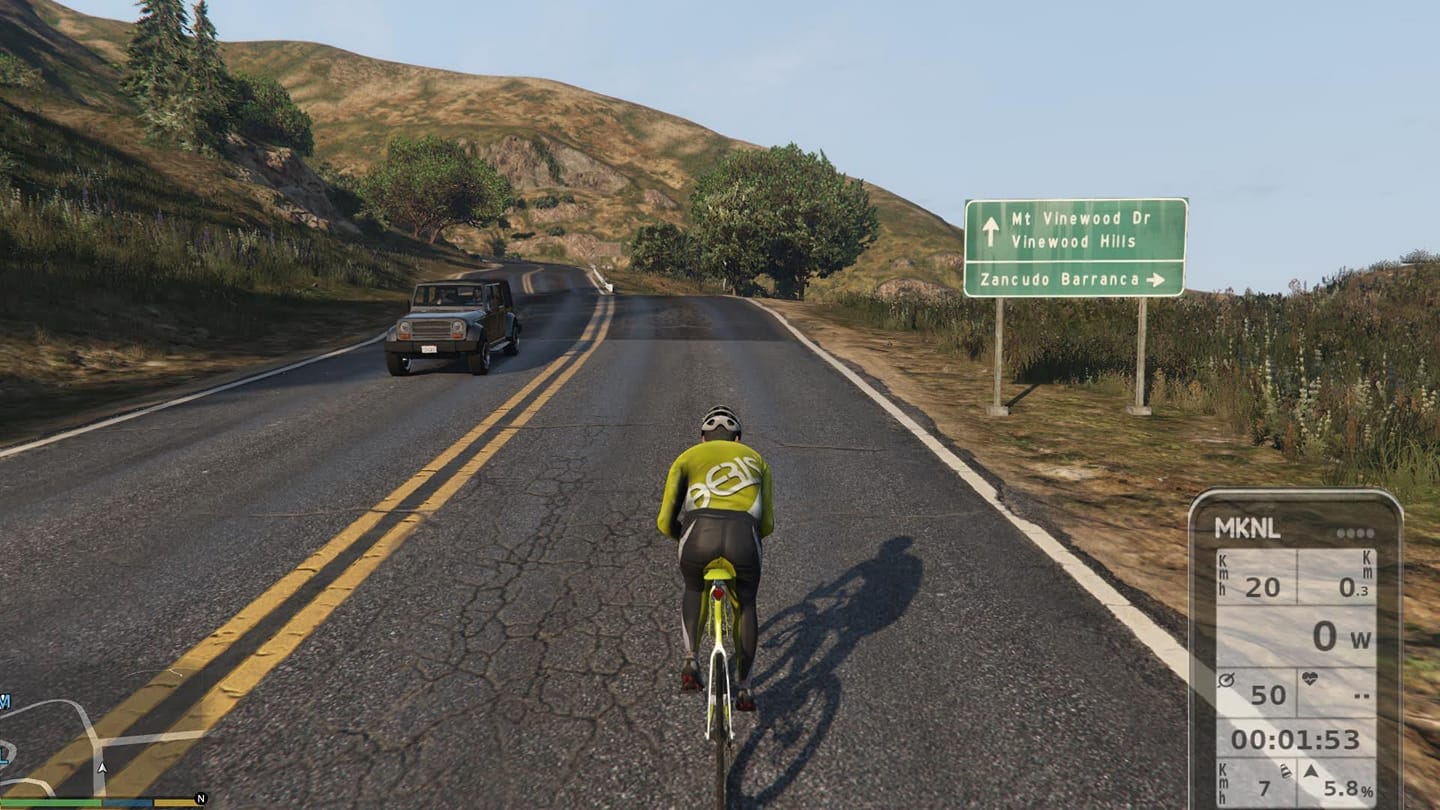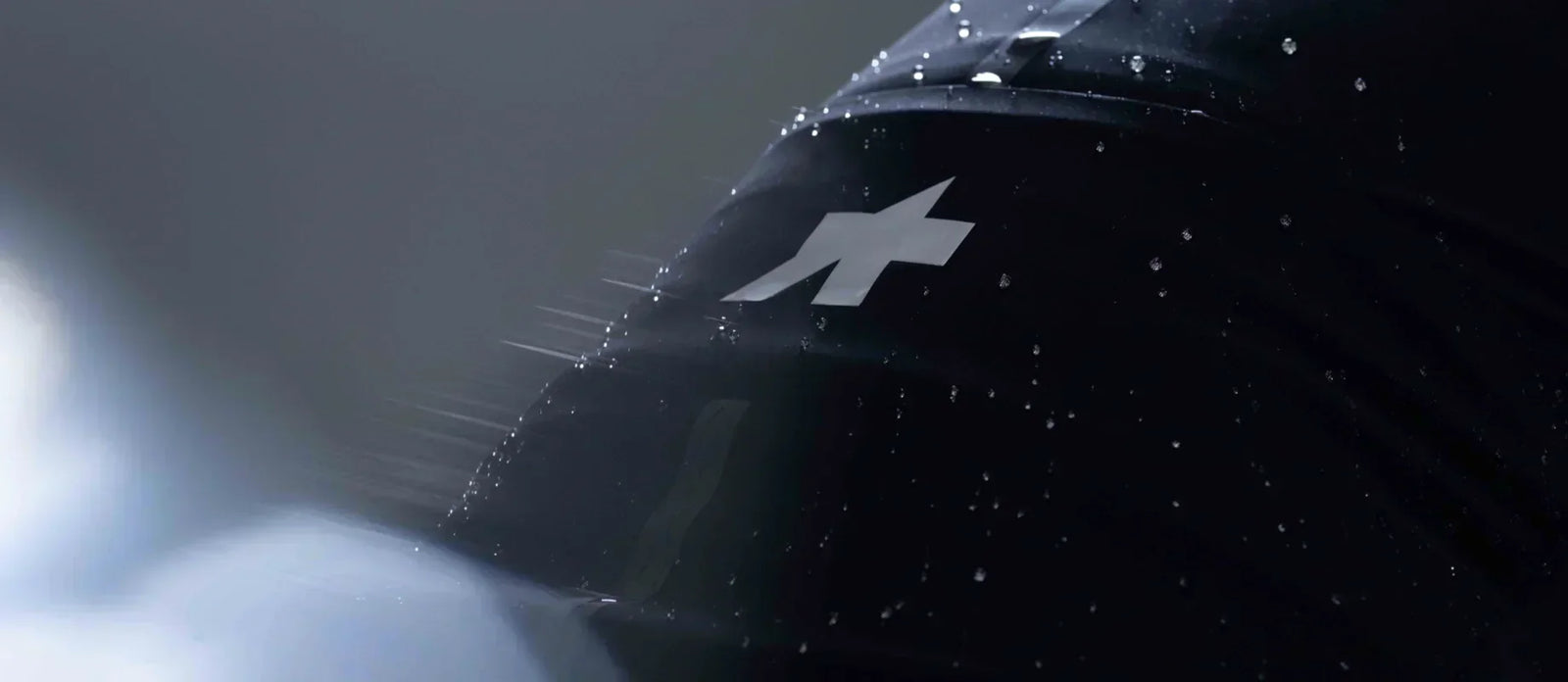
After leaving Florence, the peloton will roll through Tuscany and Emilia-Romagna to a seaside finale in Rimini. On this stage the route also dips into the principality of San Marino. The race crosses the Apennines with a succession of climbs with 3,600m of vertical gain today.
Stage 2: Sunday, June 30 - Cesenatico to Bologna, 200km
Stage two starts in Cesenatico, then on to another tough day of climbing on the road to Bologna. Less mountainous than the previous day but with the best saved for last, two ascents of the spectacular Basilica di San Luca used in the one-day Giro dell’Emilia race before the finish in Bologna.
Stage 3: Monday, July 1 – Piacenza to Turin, 230km
Today will be a day for the sprinters in Turin, the capital of Piedmont – a regular sprint finish in the Giro d'Italia. The longest day of the 2024 TdF.
Stage 4: Tuesday, July 2 – Pinerolo to Valloire, 138km
A giant mountain stage to take the race back into France. The Tour encounters a giant on the road: the Col du Galibier. Route goes up two long climbs; the 40km/2035m Sestriere and the 9km/1860m Col de Montgenèvre and then concludes with the 23km/ 2642m high Col du Galibier, and a fast descent to the finish line.
Stage 5: Wednesday, July 3 – St-Jean-de-Maurienne to Saint-Vulbas, 177km
A sprinter stage ...wth a sprint finish.
Stage 6: Thursday, July 4 – Macon to Dijon, 163km
Through the area vineyards towards a sprint finish.
Stage 7: Friday, July 5 – Nuits-Saint-Georges to Gevrey-Chambertin, 25km Individual Time Trial.
An ITT with some uphill route segments through the vineyards of Burgundy.
Stage 8: Saturday, July 6 – Semur-en-Auxois to Colombey-les-Deux-Eglises, 176km
A sprint stage but the very unulating terrain and five climbs in the first part of the stage could put a strain on some sprinters' legs.
Stage 9: Sunday, July 7 – Troyes to Troyes, 199km
A day of aprehension for GC riders trying to stay out of trouble. Mechanical problems may impact the stage and overall classification. The headline is fourteen sections of gravel totalling 32km, of which nine are kept for the final 70km.
Rest day: Monday, July 8 – Orleans
Stage 10: Tuesday, July 9 – Orleans to Saint-Amand-Montrond, 187km
Now in the center of France and the wind could play a major role as in the past when unexpected echelons marked the stage.
Stage 11: Wednesday, July 10 – Évaux-les-Bains to Le Lioran, 211km
Some 4350m of vertical gain, Néronne, the Puy Mary Pas de Peyrol, Pertus, Font de Cère. Perhaps a breakaway day or a GC day or both.
Stage 12: Thursday, July 11 – Aurillac to Villeneuve-sur-Lot, 204km
After a day in the sunflower fields a breakaway triumphed in Villeneuve in both 1996 and 2000.
Stage 13: Friday, July 12 – Agen to Pau, 171km
Pau, the entranceway to the Pyrennes and a regular TdF stage town, returns again. A sprint finish and the calm before the storm.
Stage 14: Saturday, July 13 – Pau to Saint-Lary-Soulan Pla d'Adet, 152km
The first day in the Pyrenees, and a real challenge with famous climbs on the menu. Flat roads at the start lead to the 19km climb of Col du Tourmalet, followed by the 8km Hourquette d’Ancizan, a quick descent and then the difficult climb to the summit finish at Pla d’Adet.
Stage 15: Sunday, July 14 – Loudenvielle to Plateau de Beille, 198km
Six climbs and 4850m of climbing for Bastille Day. Four first category climbs and one HC category climb. French riders will want to show today on this important French national holiday. Another summit finish on the HC category 1780m Plateau de Beille.
Rest day: Monday, July 15 – Gruissan
The sprinters may be tipped for success, but the Mistral can blow fiercely at this time of year and break up the peloton.
Stage 17: Wednesday, July 17 – Saint-Paul-Trois-Châteaux to Superdévoluy, 178km
An ideal route for a large breakaway, but the climbers will also have a chance to shine. Long valley roads ramp up to the three categorized climbs in the last 40km; the Col Bayard and then the combination of the Col du Noyer and the finish line on the Superdévoluy.
Stage 18: Thursday, July 18 – Gap to Barcelonnette, 179km
Breakaway? Sprinters? It's anyone's guess. Through the Hautes Alpes area including five category 3 climbs but not really considered a mountain stage.
Stage 19: Friday, July 19 – Embrun to Isola 2000, 145km
The ultimate giant is back on the Tour: the Cime de la Bonette and its 2802m of altitude. A shorter stage with two HC category climbs, Col du Vars19km/ 2109m, Cime de la Bonette 23km/2802m and the finish on the 16km /2024m Isola 2000 category 1 climb.
Stage 20: Saturday, July 20 - Nice to Col de la Couillole, 132km
This will be a mountainous stage from the coast at Nice inland to Col de la Couillole. A difficult route with long climbs and twisty descents. Some GC contenders may save energy for the following day’s time trial. Possible very hot weather could have an impact.
Stage 21: Sunday, July 21 - Monaco to Nice individual time trial, 35km
A break with tradition and an enforced finish in Nice, on the southern coast of France, due to the 2024 Olympics taking over Paris. The 21st and final stage will be a 35km individual time trial from the glitzy streets of Monaco to Place Masséna in Nice. For the first time in a long time, the last stage will not be purely ceremonial. The yellow jersey could be won – or lost – today.

TDF CLASSIFICATION JERSEYS EXPLAINED
Yellow Jersey: The yellow jersey is worn by the leader of the general classification, the rider with the lowest net time in the race after every stage. The rider who takes it to Paris is crowned the Tour de France winner. The jersey is yellow because the newspaper that first organised the race, L'Auto, was printed on yellow paper. The classification is based on the time taken for each rider to cover the 21 stages, taking into account time penalties and time bonuses.
Green Jersey: The green jersey is worn by the leader of the points classification. Points are awarded at stage finishes and intermediate sprints (one per road stage). While the sprinters are the main candidates for the green jersey, it's the more versatile among them who have the best chance of overall success in Paris.Points are awarded to the first 15 riders at stage finishes or intermediate sprints, with different allocations depending on the nature of the stage. More points are awarded on flat stages than on mountain stages or time trials. The winner of a flat stage scores 50 points, a mountain stage winner just 20.
Polka Dot Jersey: The polka-dot jersey is worn by the leader of the mountains classification, who is known as the 'king of the mountains.’ Mountain points are on offer at the top of every classified TdF climb, ranging from the hardest – 'hors catégorie' – to the easiest – category 4.
White Jersey: The white jersey is worn by the leader of the best young classification. A 'young rider' is anyone who was born after January 1, 1998, so anyone under 25. The jersey goes to the rider in this category that best placed on general classification. The white jersey is often an indication of future Tour de France contenders.
Riders can lead multiple jersey classifications but only wear one jersey in the race. There is an established order of priority for the different leader’s jerseys: the yellow jersey, followed by the green jersey, then the red polka-dot jersey and finally the white jersey. When a rider is leading several classifications, they wear the one designated by the order of priority. The other jerseys are then worn by the riders lying second, third or fourth in the corresponding classification.

...the riders will not want to get caught out like this on Stage 9 of the 2024 TdF, there are fourteen gravel segments to navigate on the stage!
A LITTLE HISTORY...
The TdF is built on history... in 1974, now 50 years ago, Eddy Merckx won his fifth and final Tour de France.
The 1974 TdF remained about the same length as the year before, 4,098km. Counting split days as individual stages, the Tour organization crammed 27 stages and 2 rest days into the 3 weeks of racing. There were fewer of the onerous transfers but numerous split stages (2 per day) exhausted the riders and were a source of vigorous complaint. A complicated transfer took the TdF for the first time to England for a stage. The 1974 Tour went clockwise around France, starting in Brittany, circling the perimeter of France before heading inland to the finish in Paris. This was the last finish on the Paris Municipal track before the TdF finishes moved to the landmark Champs-Élysées circuit the next year.
Merckx came to the Tour with wins in both the Giro d'Italia and the Tour of Switzerland. He started the early season well, winning one of the first races on the European calendar, the Italian Trofeo Laigueglia. The rest of Merckx's spring was not up to his normal standards. For the first time since 1965, his first year as a pro, he didn't win any Spring Classics. With the exception of the Classics, his list of 1974 victories is stunning: Giro, Swiss Tour, Tour de France and the World Road Championship.
Two top competitors in Luis Ocaña and Joop Zoetemelk were absent from the 1974 race. Despite this and other riders finishing closer in the overall standings, Merckx still won an astonishing eight stages. He also won the combination classification. Fellow Belgian Patrick Sercu won the points classification, while Domingo Perurena from Spain won the mountains classification.


1974 Tour de France General Classification:
1. Eddy Merckx (Molteni) 116hr 16min 58sec
2. Raymond Poulidor (Gan-Mercier) @ 8min 4sec
3. Vicente López-Carril (KAS) @ 8min 9sec
4. Wladimiro Panizza (Brooklyn) @ 10min 59sec
5. Gonzalo Aja (KAS) @ 11min 24sec
6. Joaquim Agostinho (Bic) @ 14min 24sec
7. Michel Pollentier (Carpenter-Confortluxe) @ 16min 34sec
8. Mariano Martinez (Sonolor-Gitane) @ 18min 33sec
9. Alain Santy (Gan-Mercier) @ 19min 55sec
10. Herman Van Springel (MIC-Ludo-De Gribaldy) @ 24min 11sec
11. Roger Pingeon (Jobo-Lejeune) @ 27min 7sec
12. Raymond Delisle (Peugeot-BP) @ 28min 59sec
13. Jean-Pierre Danguillaume (Peugeot-BP) @ 29min 43sec
14. Juan Zurano (La Casera-Bahamontes) @ 30min 20sec
15. André Romero (Jobo-Lejeune) @ 31min 35sec
16. Michel Périn (Gan-Mercier) @ 31min 57sec
17. Miguel-Maria Lasa (KAS) @ 32min 55sec
18. Lucien van Impe (Sonolor-Gitane) @ 37min 35sec
19. Andrés Oliva (La Casera-Bahamontes) @ 37min 48sec
20. Bernard Labourdette (Bic) @ 38min 2sec
21. Joseph Bruyère (Molteni) @ 41min 31sec
22. Edouard Janssens (Molteni) @ 44min 30sec
23. Fausto Bertoglio (Brooklyn) @ 45min 30sec
24. Willy Van Neste (Sonolor-Gitane) @ 46min 50sec
25. Ronald De Witte (Carpenter Confortluxe) @ 47min 10sec
26. Giancarlo Bellini (Brooklyn) @ 47min 46sec
27. Fedor den Hertog (Frisol) @ 50min 28sec
28. José Catieau (Bic) @ 51min 11sec
29. José Pesarrodona (KAS) @ 53min 44sec
30. Georges Pintens (MIC-Ludo-De Gribaldy) @ 56min 43sec
31. Joël Millard (Flandria-Shimano-Merlin Plage) @ 57min 8sec
32. Ferdinand Julien (Sonolor-Gitane) @ 1hr 0min 6sec
33. Roland Berland (Bic) @ 1hr 1min 13sec
34. Régis Ovion (Peugeot-BP) @ 1hr 5min 22sec
35. Marc Lievens (Molteni) @ 1hr 9min 16sec
36. Victor Van Schil (Molteni) @ 1hr 12min 37sec
37. Barry Hoban (Gan-Mercier) @ 1hr 13min 11sec
38. Gerrie Knetemann (Gan-Mercier) @ 1hr 14min 15sec
39. Francis Campaner (Lejeune-Jobo) @ 1hr 16min 19sec
40. Antonio Martos (KAS) @ 1hr 18min 2sec
41. Marc Demeyer (Carpenter-Confortluxe) @ 1hr 18min 28sec
42. Luis Zubero (KAS) @ 1hr 19min 12sec
43. Arturo Pecchielan (Brooklyn) @ 1hr 19min 15sec
44. Domingo Perurena (KAS) @ 1hr 19min 18sec
45. Jos Deschoenmaecker (Molteni) @ 1hr 19min 36sec
46. Jesus Manzaneque (La Casera-Bahamontes) @ 1hr 19min 54sec
47. Jean-Claude Misac (Flandria-Shimano-Merlin Plage) @ 1hr 23min 26sec
48. Christian Blain (Lejeune-Jobo) @ 1hr 23min 52sec
49. Carlos Melero (KAS) @ 1hr 25min 17sec
50. Joseph Spruyt (Molteni) @ 1hr 25min 41sec
51. Sylvain Vasseur (Bic) @ 1hr 26min 37sec
52. Bernard Bourreau (Peugeot-BP) @ 1hr 27min 7sec
53. Jan Van De Wiele (MIC-Ludo-De Gribaldy) @ 1hr 28min 25sec
54. Antonio Menendez (KAS) @ 1hr 30min 43sec
55. André Dierickx (Flandria-Shimano-Merlin Plage) @ 1hr 32min 18sec
56. Gerard Vianen (Gan-Mercier) @ 1hr 36min 27sec
57. Michael Wright (Sonolor-Gitane) @ 1hr 38min 11sec
58. Ludo Delcroix (Molteni) @ 1hr 38min 13sec
59. André Mollet (Peugeot-BP) @ 1hr 38min 40sec
60. José Luis Abilleira (La Casera-Bahamontes) @ 1hr 39min 12sec
61. Gerben Karstens (Bic) @ 1hr 39min 19sec
62. Damaso Torres (La Casera-Bahamontes) @ 1hr 40min 11sec
63. Gustaaf Van Roosbroeck (MIC-Ludo-De Gribaldy) @ 1hr 41min 11sec
64. Alain Nogues (Sonolor-Gitane) @ 1hr 42min 17sec
65. Willy Teirlinck (Sonolor-Gitane) @ 1hr 47min 11sec
66. Jos Huysmans (Molteni) @ 1hr 49min 0sec
67. Jean-Pierre Genet (Gan-Mercier) @ 1hr 49min 2sec
68. Jean-Jacques Sanquer (Flandria-Shimano-Merlin Plage) @ 1hr 50min 29sec
69. Valerio Lualdi (Brooklyn) @ 1hr 51min 22sec
70. Noël Vanclooster (MIC-Ludo-De Gribaldy) @ 1hr 51min 24sec
71. Guy Sibille (Peugeot-BP) @ 1hr 52min 44sec
72. Gerard Moneyron (Flandria-Shimano-Merlin Plage) @ 1hr 53min 52sec
73. Wilfried Wesemael (MIC-Ludo-De Gribaldy) @ 1hr 54min 9sec
74. Charles Rouxel (Peugeot-BP) @ 1hr 54min 22sec
75. Jacques Esclassan (Peugeot-BP) @ 1hr 56min 47sec
76. Christian Raymond (Gan-Mercier) @ 1hr 57min 36sec
77. Daniel Rebillard (Flandria-Shimano-Merlin Plage) @ 1hr 58min 3sec
78. Wim Prinsen (Frisol) @ 1hr 58min 50sec
79. Raymond Riotte (Peugeot-BP) @ 1hr 59min 51sec
80. Jacky Mourioux (Gan-Mercier) @ 2hr 0min 6sec
81. Alain Vasseur (Bic) @ 2hr 1min 28sec
82. Claude Magni (Lejeune-Jobo) @ 2hr 6min 3sec
83. Frans Mintjens (Molteni) @ 2hr 6min 43sec
84. Henk Prinsen (Frisol) @ 2hr 10min 9sec
85. Jean-Pierre Guillemot (Lejeune-Jobo) @ 2hr 12min 12sec
86. Jacques Botherel (Sonolor Gitane) @ 2hr 12min 37sec
87. Robert Mintkiewicz (Sonolor-Gitane) @ 2hr 16min 5sec
88. Ronny Vanmarcke (MIC-Ludo-De Gribaldy) @ 2hr 17min 34sec
89. Patrick Sercu (Brooklyn) @ 2hr 18min 58sec
90. Daniel Ducreux (Lejeune-Jobo) @ 2hr 19min 20sec
91. Gianni De Lorenzo (Brooklyn) @ 2hr 20min 52sec
92. Bernard Croyet (Bic) @ 2hr 23min 57sec
93. Dirk Baert (MIC-Ludo-De Gribaldy) @ 2hr 24min 45sec
94. Fernando Plaza (La Casera-Bahamontes) @ 2hr 28min 19sec
95. Michel Coroller (Flandria-Shimano-Merlin Plage) @ 2hr 36min 59sec
96. Arthur Van De Vyver (Carpenter-Confortluxe) @ 2hr 38min 42sec
97. Aldo Parecchini (Brooklyn) @ 2hr 41min 11sec
98. Alain Cigana (Lejeune-Jobo) @ 2hr 42min 24sec
99. Frans Van Looy (Carpenter-Confortluxe) @ 2hr 46min 3sec
100. Daniel Verplancke (Carpenter-Confortluxe) @ 2hr 46min 38sec
101. Regis Delepine (Flandria-Shimano-Merlin Plage) @ 2hr 55min 42sec
102. Piet Van Katwijk (Frisol) @ 2hr 58min 39sec
103. Donald John Allan (Frisol) @ 3hr 6min 53sec
104. Bernard Masson (Leujeune-jobo) @ 3hr 16min 56sec
105. Lorenzo Alaimo (Frisol) @ 3hr 55min 46sec
Climbers' Competition:
1. Domingo Perurena (KAS): 161 points
2. Eddy Merckx (Molteni): 118
3. José-Luis Abilleira (La Casera-Bahamontes): 109
4. Gonzalo Aja (KAS): 90
5. Raymond Poulidor (Gan-Mercier): 80
6. Vicente Lopez-Carril (KAS): 74
7. Andres Oliva (La Casera-Bahamontes): 65
8. Wladimiro Panizza (Brooklyn): 52
9. Antonio Menendez (KAS): 35
10. Jean-Pierre Danguillaume (Peugeot-BP), Joaquim Agostinho (Bic): 33
Points Competition:
1. Patrick Sercu (Brooklyn): 283 points
2. Eddy Merckx (Molteni): 270
3. Barry Hoban (Gan-Mercier): 170
4. Gerben Karstens (Bic): 149
5. Jacques Escalssan (Peugeot-BP): 143
6. Herman Van Springel (MIC-Ludo-De Gribaldy): 113
7. Michel Pollentier (Carpenter-Confortluxe): 107
8. Piet Van Katwijk (Frisol): 97
9. Gerard Vianen (Gan-Mercier): 94
10. Raymond Poulidor (Gan-Mercier): 94
Team Classification:
1. KAS: 350hr 24min 27sec
2. Gan-Mercier @ 15min 26sec
3. Molteni @ 32min 23sec
4. Sonolor-Gitane @ 49min 2sec
5. Bic @ 49min 50sec
6. Brooklyn @ 53min 4sec
7. Lejeune-Jobo @ 1hr 1min 9sec
8. Peugeot-BP @ 1hr 15min 24sec
9. La Casera-Bahamontes @ 1hr 34min 47sec
10. MIC-Ludo-De Gribaldy @ 1hr 36min 35sec
11. Carpenter-Confortluxe @ 1hr 53min 40sec
12. Flandria-Shimano-Merlin Plage @ 2hr 13min 48sec
13. Frisol @ 3hr 44min 53sec



